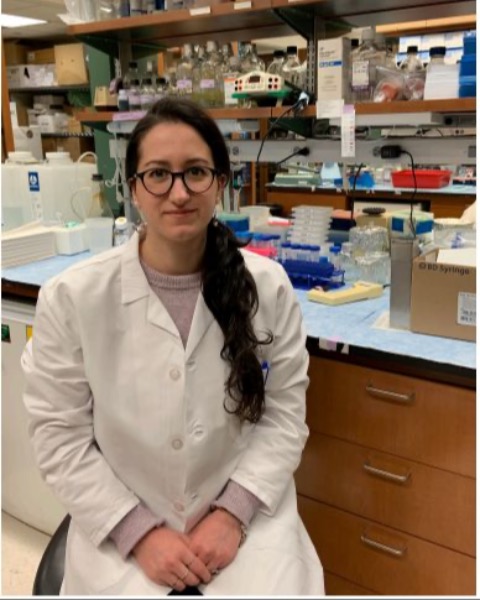
Simona Migliozzi, PhD
University of Miami
Miami Beach, United States
Simona Migliozzi, Ph.D, University of Miami Sylvester Comprehensive Cancer Center
I graduated in Science and Genetics Technology at University of Sannio, Italy, in 2015. The aim of my Master’s Degree thesis was the development and application of a computational approach which integrates somatic mutation and copy number variation profiles with protein-protein interaction networks to identify distinct subtypes of gliomas (e.g., low-grade glioma and glioblastoma). I got my PhD in Molecular Oncology in April 2019 which was focused on the molecular characterization both at a genomic level (somatic mutations and CNV) and at transcriptomic level (gene expression) of high serous ovarian cancer samples in order to identify the molecular signatures associated with different response to platinum-based chemotherapy. Since 2019 I am post-doctoral research fellow (Italian Association for Cancer Research AIRC fellowship) in the lab of Professor Iavarone (Columbia University, New York) which seeks to unravel the biologic and genetic alterations driving subgroups of malignant brain tumors and exploit this information for rational therapeutic stratification. My research focus is the development of computational tools able to integrate multi-omics data from single cells and bulk tumors in order to provide rapid translation of proteogenomic information to better diagnose and treat patients with glioblastoma. Recently we developed a pathway-based approach able to identify new glioblastoma subtypes whose pathways deregulation reflect the genetic alterations, providing us help in the designation of personalized therapies. We uncovered a GBM subtype we defined “mitochondrial” composed of tumors which exclusively rely on oxidative phosphorylation (OXPHOS) metabolism for energy production and survival and that are vulnerable to OXPHOS inhibitors. Since September 2022 I am Assistant Scientist in Prof. Iavarone Lab at Sylvester Comprehensive Cancer Center in Miami with the aim of develop computational tools to integrate proteogenomics data derived from the most innovative spatial technologies.
